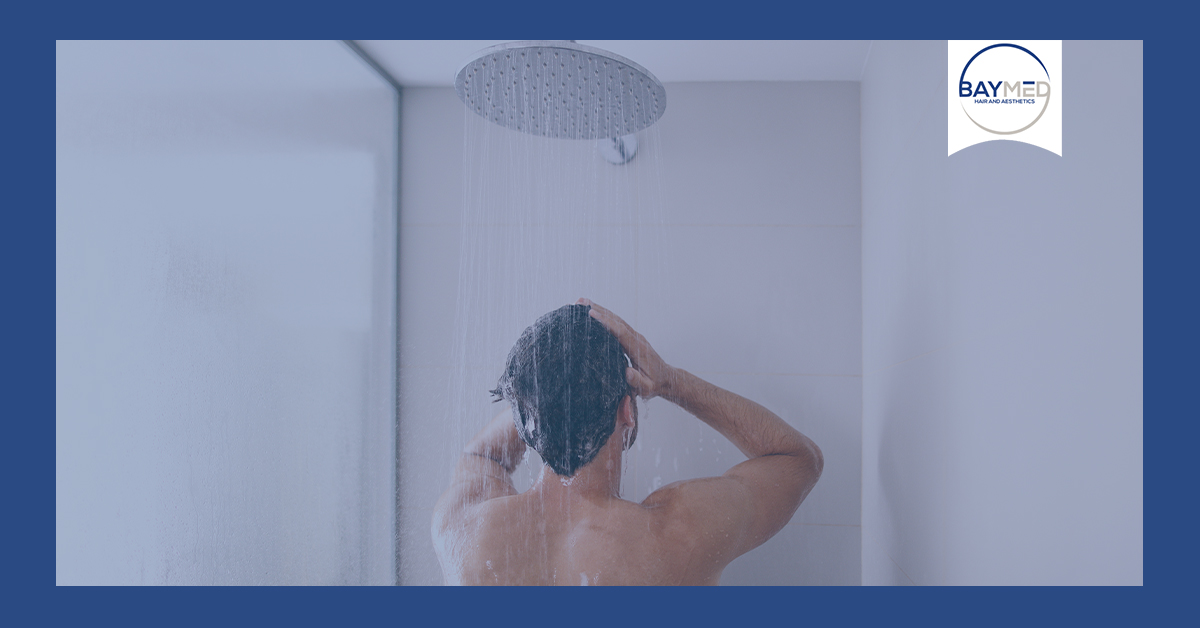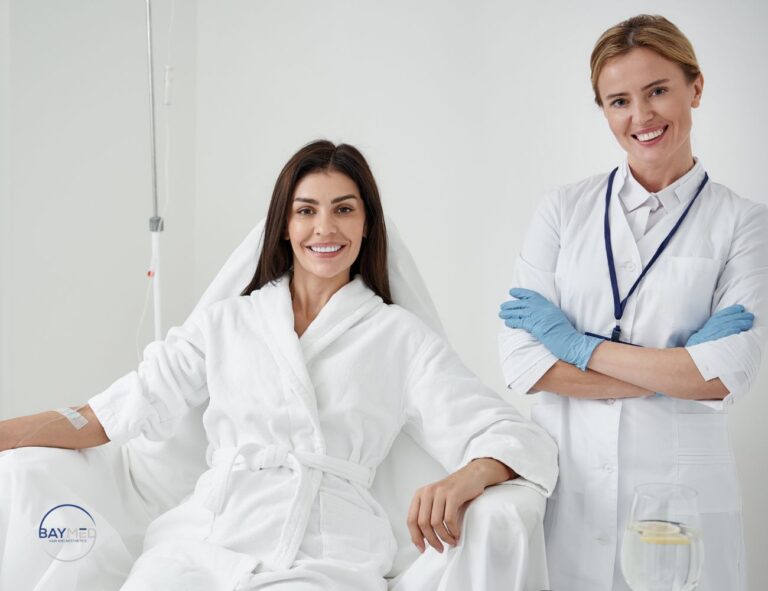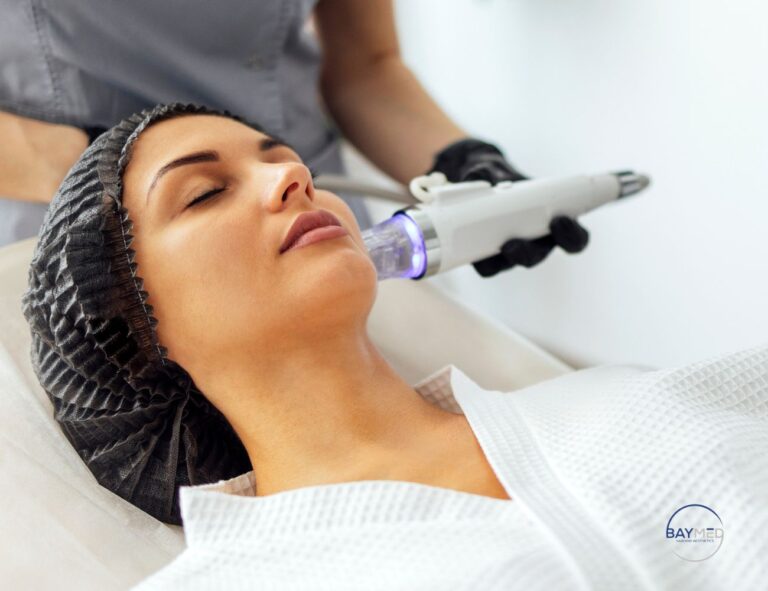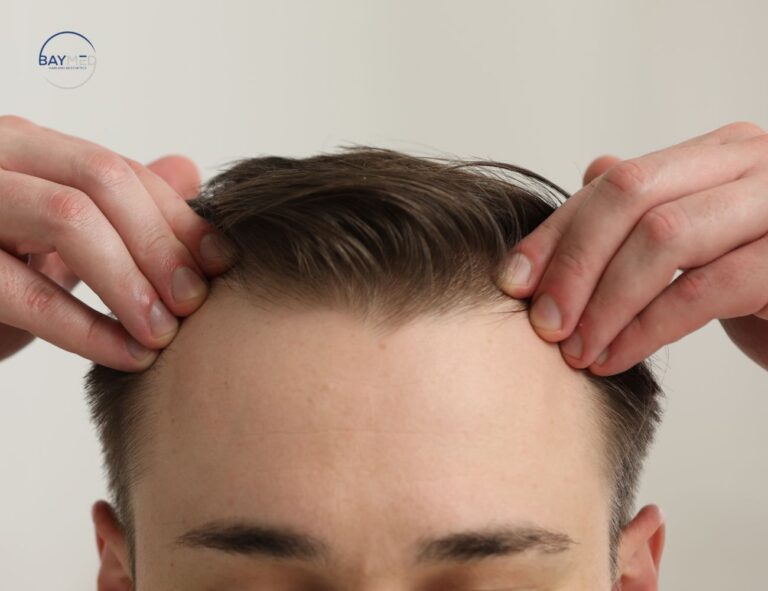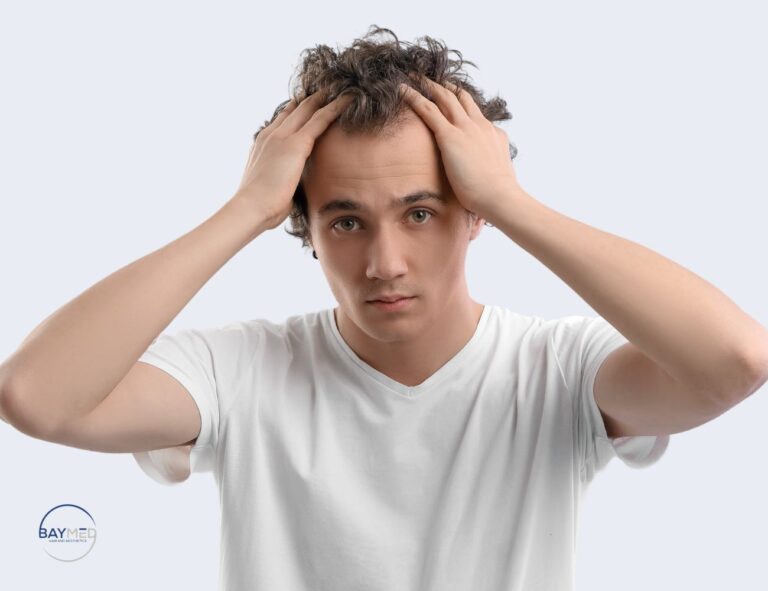Your hair transplant’s success will depend significantly on how well you follow the aftercare directions. Taking personal responsibility to ensure you follow the doctor’s orders very carefully can help improve healing time and lead to better hair restoration treatments.
How Long Does It Take to Heal from Hair Restoration?
When you opt for a hair restoration transplant, you invest in your future happiness. But, like any transplant, healing is not overnight.
The Mayo Clinic suggests that complete healing can take several months. Typically, when transplants are done, the transplanted hair will look normal for about a month and then fall out as the grafted skin and hair follicles adjust to their new location. This is perfectly normal and part of the hair growth and shedding cycle.
After that, you will need to wait several months for the new hair growth to reach a point where you start seeing a difference in your hair. Doctors at the Mayo Clinic suggest that the complete process may take almost a year.
That doesn’t mean your scalp hasn’t healed during that entire time. The wounds themselves, along with any accompanying itching, usually heal in about two weeks. Healing time will vary from patient to patient and depends entirely on how well you follow the doctor’s directions.
When Can I Wash My Hair Normally After Hair Restoration?
Most people can resume gentle hair washing within three to five days after hair restoration surgery. However, this can vary depending on the extensiveness of the transplants and your personal health history. Your surgeon will provide instructions on how to wash your hair the week after the procedure.
In most cases, your doctor will ask that you refrain from washing the affected area for at least 48 hours. During that time, you may be asked to apply lotions and conditioners to the scalp to help keep the site moisturized and to speed healing.
Most often, you will be able to use gentle baby shampoo to help remove dried blood and scabs around the transplant site, but you will need to do so without rubbing or running water directly onto the restored area. You will be encouraged to pat the area dry, as rubbing may disrupt the healing process.
What Should You Not Do After a Hair Transplant?
- Post-surgery scalp care is vital, protecting your scalp from the sun and other damaging effects. You should wear a head covering when outdoors for the next several months.
- You should also avoid alcohol and make sure you stay well hydrated. Drinking lots of water can help the body heal faster.
- Some doctors recommend that patients sleep in a recliner or on several pillows to keep the head elevated and reduce swelling. Sleeping on your stomach is a terrible idea.
- Patients should avoid using dyes or other harsh chemicals on their hair during healing. And probably the most important thing is to prevent scratching the transplant area, and a good antihistamine can help reduce any itch.
- The key to healthy hair is following the doctor’s instructions and maintaining the simple hair transplant aftercare instructions. Many patients stop moisturizing and caring for their scalp when the initial healing is finished, and that can delay or prevent complete healing and hair regrowth.
BayMed Hair and Aesthetics Are the Hair Restoration Experts
When the time is right for your hair restoration, we can walk you through every step of the way, from the start to healthy hair. BayMed Hair and Aesthetics offers a free consultation to determine the cause of your hair loss and will recommend the appropriate treatment method for your needs. Call us today for your consultation.

